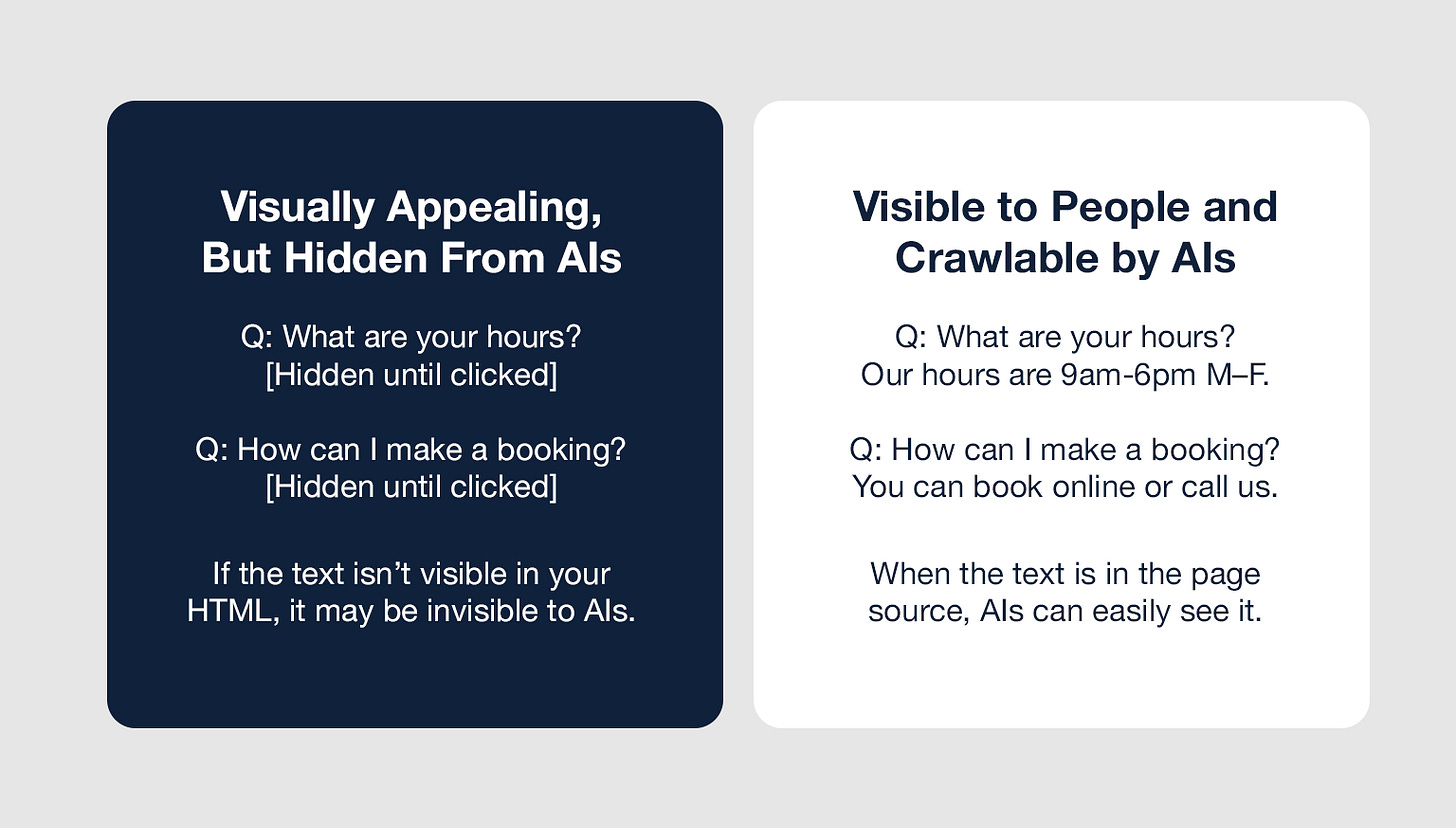How to Make Your Website Discoverable by AI
What I learned taking a business from 0 to 80 AI hits per day.
ChatGPT and other LLMs are quickly becoming the first place people go to search, even more-so than Google. AI SEO is rapidly replacing traditional SEO, yet most businesses haven’t made the shift. They are still operating under the pre-AI status quo.
This post breaks down how to adapt your website to get recommended more often by LLMs, highlighting a few key adjustments to make your business more visible.
In our inaugural Noble Growth Insights post, we shared a chart showing how AI search is predicted to overtake traditional search by 2028. That shift is already well underway.
Your website is no longer just competing for clicks on a search results page. It’s competing to be the answer that AIs deliver. And this trend will only become more prominent over time, so you’re better off adjusting sooner rather than later.
The Case Study: From 0 to 80 AI Hits a Day
One of my clients, a hospitality business, just recently began appearing in AI recommendations after a few key optimizations focused on crawlability and clarity.
Here’s what we changed:
Added an FAQs page with natural, conversational questions that people are likely to ask to an LLM; and clear, plain-text answers to those questions.
Added a reviews page written in simple text that AIs can easily summarize.
Added rich, structured content with clear headings and hierarchy, avoiding hidden text or dropdowns that look nice to humans but are obfuscated for AI.
Optimized metadata to make the site easier to interpret for AI models.
Integrated authoritative backlinks to make the website as easy as possible to find.
Result: The site went from 0 to 80 AI hits per day over the first 90 days, and is continuing to trend upwards. 89% of the traffic comes from ChatGPT, 7% from Perplexity, and 4% from Gemini. Many of these interactions led directly to bookings.
Why AI SEO Differs from Traditional SEO
AIs read differently. They ignore design flourishes and focus on text structure, metadata, and schema.
Clarity beats cleverness. Straightforward language helps AIs map your content to user intent.
Questions matter more than keywords. Think like your customer: What would they actually ask an AI?
Entities and context are key. Use consistent names and schema to identify your business, location, and services.
Readable reviews matter. Include written reviews in plain text, not just embedded widgets or scripts that look good to humans but are invisible to AIs.
How to Make Your Site AI-Discoverable
Add an FAQ page that mirrors the natural phrasing of user questions.
Publish a reviews page in plain text rather than relying on third-party embeds.
Simplify the site structure so all key text is visible to crawlers.
Use schema markup to define your content clearly.
Write clear metadata with concise, descriptive titles and meta descriptions.
Keep your content fresh to encourage AI models to re-index your site.
Backlink to other prominent sites where your business can be found, in particular your Google My Business, your Apple Maps, and your social accounts on Instagram, Facebook, X, LinkedIn, YouTube, TikTok, Pinterest, and Reddit.
Track AI referrals separately using analytics tools that identify ChatGPT, Perplexity, and Gemini as traffic sources.
The Takeaway
AI SEO is about finding and widening the path of least resistance between user intent and the information your business provides.
Traditional SEO was about ranking higher in search results. AI SEO is about being clearly understood by the models that now guide discovery and recommendation.
The businesses that adapt first will be the ones most often chosen.
Need help adjusting your website for AI SEO? Email mattimore@noblegrowth.co.




